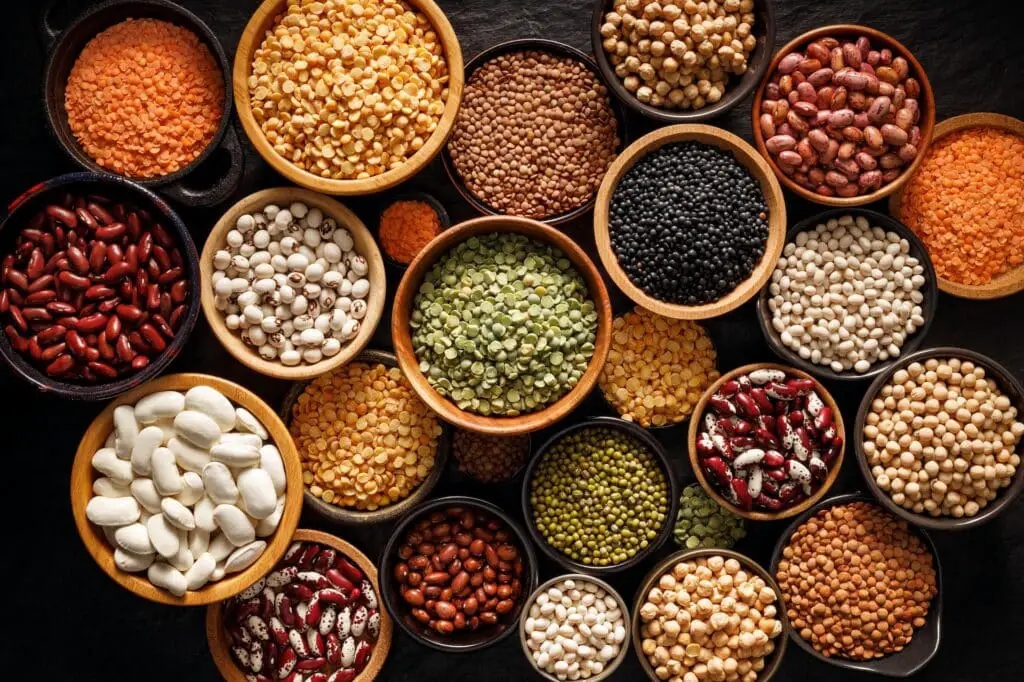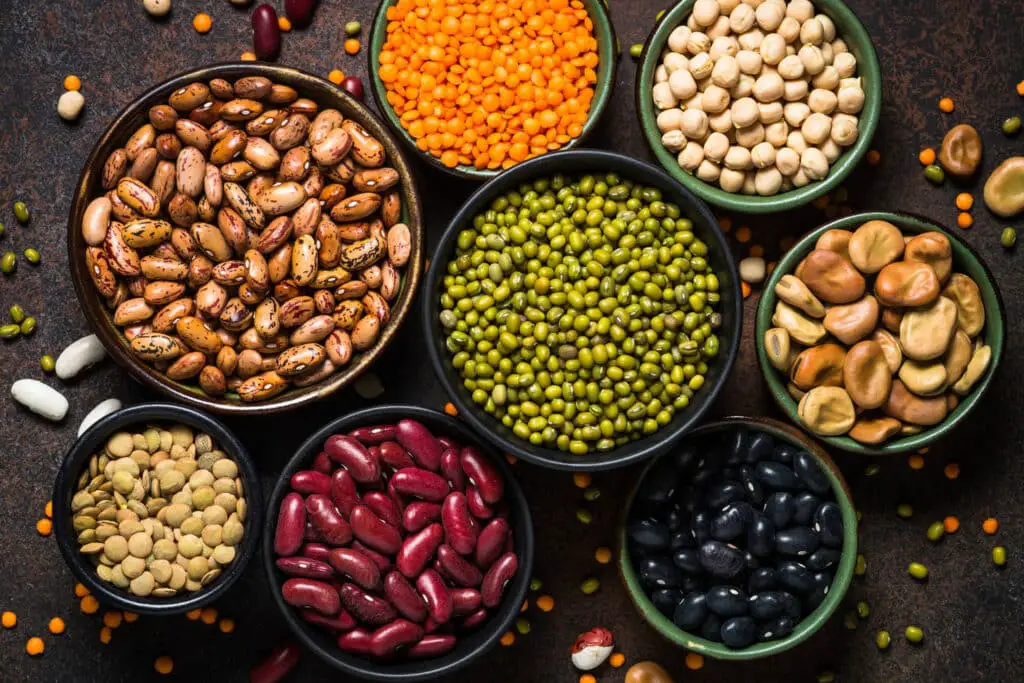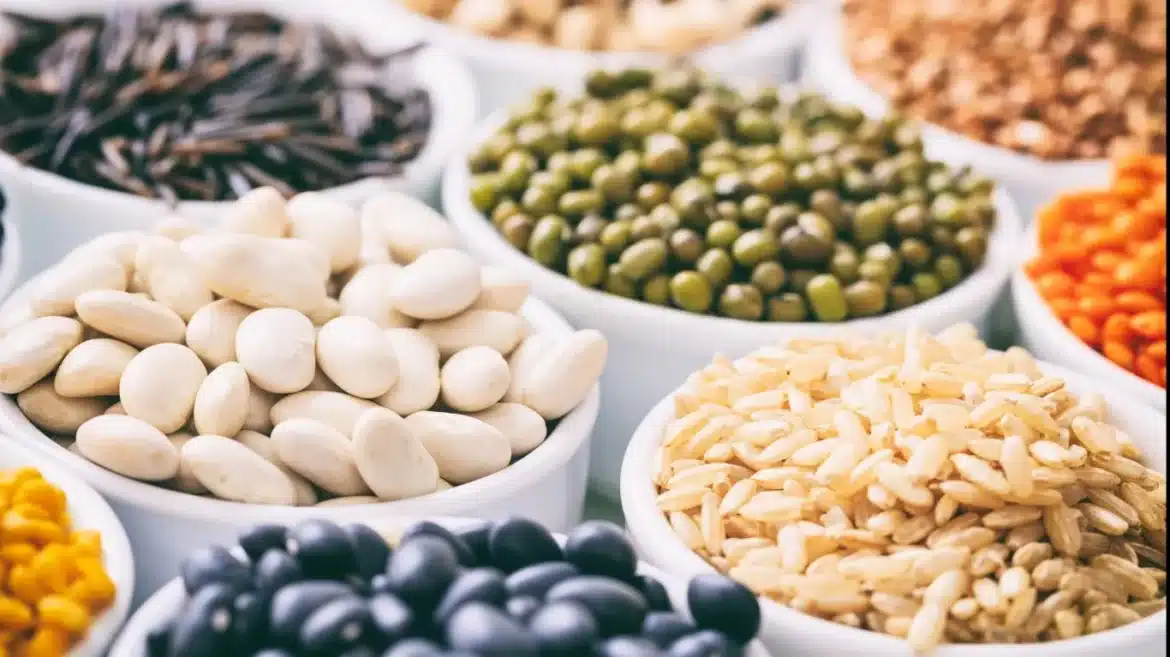Introduction
Are Beans And Rice Good For Weight Loss: In the ongoing quest for healthier eating habits and effective weight management, the role of dietary choices cannot be overstated. One such dietary combination that has gained popularity for its potential in aiding weight loss is the humble yet versatile pairing of beans and rice. While beans and rice have long been dietary staples in various cultures worldwide, their merits in the context of weight loss are increasingly recognized by health-conscious individuals and nutrition experts alike. This combination offers a balanced blend of essential nutrients, dietary fiber, and protein, making it a compelling option for those seeking to shed pounds while still enjoying satisfying and nutritious meals. In this exploration, we will delve into the reasons why beans and rice are considered good for weight loss, backed by scientific evidence and expert insights, to help you make informed choices on your weight loss journey.
Several studies have suggested that diets incorporating beans and rice may lead to weight loss when combined with a calorie-controlled diet. Research has shown that individuals who consume beans tend to have lower body weight, smaller waist circumferences, and reduced risk factors for obesity-related diseases.
While beans and rice can be a valuable addition to a weight loss plan, it’s essential to maintain overall dietary balance and portion control. Incorporating a variety of foods and consulting with a healthcare professional or registered dietitian can help you create a personalized and sustainable weight loss strategy that aligns with your goals and preferences.

Can you eat rice and beans to lose weight?
The high satiety factors of rice and beans can help you lose weight or stay at a healthy weight over time. Satiety measures how satisfying a food is to eat and how long it keeps you full. Satiety is vital in maintaining a healthy weight.
The Nutritional Power Duo: Rice and Beans
Rice and beans, often enjoyed together in various cuisines worldwide, create a nutritionally potent duo. They offer a balanced combination of carbohydrates, protein, and fiber, making them a valuable addition to any diet, including those aimed at weight loss.
Carbohydrates: Rice provides a good source of carbohydrates, offering energy for daily activities and exercise. The type of rice you choose matters; opt for brown rice over white rice as it contains more fiber and nutrients, helping you feel fuller for longer.
Protein: Beans, on the other hand, are rich in plant-based protein. Protein plays a crucial role in weight management by promoting a feeling of fullness, reducing overall calorie intake, and aiding in muscle preservation during weight loss.
Fiber: Both rice and beans are excellent sources of dietary fiber. Fiber not only aids in digestion but also contributes to satiety, preventing overeating by keeping you feeling full.
Weight Loss Benefits
Satiety: The combination of rice and beans is known for its ability to provide a lasting feeling of fullness. This can help curb between-meal cravings and reduce overall calorie consumption, making it easier to maintain a calorie deficit for weight loss.
Steady Energy: The complex carbohydrates in rice release energy gradually, preventing blood sugar spikes and crashes. This steady energy supply can help you avoid overeating due to sudden hunger pangs.
Nutrient Density: Rice and beans are packed with essential nutrients like vitamins, minerals, and antioxidants. By incorporating them into your diet, you can ensure that you’re getting vital nutrients even while reducing calorie intake.
Versatility: The versatility of rice and beans allows for a wide range of meal options. You can create diverse and satisfying dishes by combining them with vegetables, lean proteins, and various seasonings, making it easier to stick to a weight loss plan.
Is it OK to eat rice and beans everyday?
The combination of rice and beans gives you even more protein and fiber, as well as other important vitamins and minerals, like folate. Although it probably won’t harm you to eat rice and beans every day, it’s best to include a variety of nutritious foods in your diet for complete nutrition.
The Benefits of Daily Consumption
Affordability: Rice and beans are cost-effective, making them an excellent choice for individuals on a budget. They offer a great source of nutrition without breaking the bank.
Sustainability: Beans are environmentally friendly as they require less water and land compared to some other protein sources. Choosing beans over meat more often can contribute to sustainability efforts.
Nutrient Diversity: While it’s essential to have a diverse diet, rice and beans can be part of a balanced eating plan. They can serve as a base for various meals by adding different vegetables, proteins, and seasonings, ensuring you get a variety of nutrients.
Potential Concerns
Nutrient Imbalance: While rice and beans are nutritious, relying solely on them for every meal may lead to nutrient imbalances. For instance, you might not get enough vitamins like vitamin C or certain amino acids necessary for optimal health.
Monotony: Eating the same foods every day can become monotonous and lead to dietary boredom. This might result in cravings for less healthy options, potentially derailing your overall dietary goals.
Digestive Issues: Some people may experience digestive discomfort when consuming beans daily due to their high fiber content. Gradually increasing your intake and ensuring proper cooking can help mitigate these issues.
Antinutrients: Beans contain compounds called antinutrients, which can hinder the absorption of certain minerals like iron and zinc. Cooking beans thoroughly and diversifying your diet can help counteract this effect.
Can I eat beans when trying to lose weight?
Keeps You at a Healthy Weight
If you make it a habit to eat beans, you’re more likely to have a lower body weight, slimmer waist, and a lower body mass index (BMI). Studies show that obese men on a protein-rich diet lost more weight with beans as their top protein source.
How Beans Aid Weight Loss
Satiety: The combination of protein and fiber in beans creates a feeling of fullness that can help you control your appetite and reduce overall calorie intake, making it easier to maintain a calorie deficit for weight loss.
Steady Energy: The slow-release carbohydrates in beans provide a steady source of energy throughout the day, helping to prevent energy dips that can lead to cravings for high-calorie snacks.
Nutrient Density: Beans offer important nutrients without excessive calories. This means you can enjoy a nutrient-rich meal while keeping calorie consumption in check.
Versatility: Beans can be incorporated into various dishes, from salads and soups to burritos and stir-fries. Their versatility allows for diverse and satisfying meal options that fit your preferences and dietary needs.
Tips for Including Beans in Your Weight Loss Plan
Portion Control: While beans are nutritious, portion control is crucial. A typical serving size is about half a cup of cooked beans, which contains approximately 100-120 calories.
Combine with Vegetables: Incorporate beans into vegetable-rich dishes for added nutrients and fiber. This combination can help you feel full and satisfied with fewer calories.
Watch the Additions: Be mindful of what you add to your beans. Avoid excessive amounts of high-calorie toppings like cheese, sour cream, or processed sauces.
Prepare Them Properly: Soaking and cooking beans can reduce antinutrients and make them easier to digest. Canned beans are a convenient option but often contain added sodium, so rinsing them can help reduce the sodium content.
Are beans or rice better for diet?
Beans have a much higher protein and fiber content than white rice, but that doesn’t make the rice bad for you. White rice will quickly raise blood sugar, giving you quick energy. This is because white rice is mostly simple carbohydrates.
Protein: Beans are an excellent source of plant-based protein. Protein is essential for muscle maintenance, immune function, and satiety, making it a valuable component of many diets, including vegetarian and vegan.
Fiber: Beans are rich in dietary fiber, which aids digestion, regulates blood sugar levels, and promotes a feeling of fullness. High fiber content can help control appetite and reduce overall calorie intake.
Low Fat: Most beans are naturally low in fat, particularly saturated fat, making them a heart-healthy option.
Complex Carbohydrates: The carbohydrates in beans are primarily complex carbohydrates. These release energy slowly, providing a steady source of fuel and helping to maintain stable blood sugar levels.
Micronutrients: Beans are packed with essential vitamins and minerals, including folate, iron, magnesium, and potassium, which are crucial for overall health.
What is the best time to eat beans?
Fiber helps keep you feeling fuller for longer (which explains why high-fiber foods are so popular), so consider adding beans to your lunch if you find yourself craving a snack every day a few hours before dinner, or add them to your breakfasts if you’re always ready for lunch at 10:30 a.m.
Morning
Sustained Energy: Beans are a source of complex carbohydrates and protein, providing a steady release of energy throughout the morning. This can help maintain your energy levels and prevent mid-morning energy crashes.
Satiety: The combination of protein and fiber in beans can keep you feeling full for longer, reducing the temptation to snack on less healthy options before lunch.
Nutrient Boost: Starting your day with beans can provide essential nutrients like iron, folate, and magnesium, which are important for overall health.
Can I eat rice and beans for dinner?
But the truth is that rice and beans is a powerful, healthy combo. Together they make a complete protein! Which means that you don’t always need animal protein with your meal in order to feel full. That’s what makes rice and beans such a great choice if you’re tight on your budget.
Rice
Complex Carbohydrates: Rice serves as an excellent source of complex carbohydrates, supplying a steady release of energy. Opting for whole-grain varieties like brown rice enhances the fiber content, promoting better digestion and satiety.
B Vitamins: Rice contains essential B vitamins such as niacin and thiamine, important for energy metabolism and overall health.
Minerals: Rice provides minerals like magnesium, phosphorus, and selenium, which contribute to bone health, nerve function, and antioxidant protection.
Beans
Protein: Beans are renowned for their plant-based protein content, making them a valuable component for vegetarians and vegans. Protein aids in tissue repair, immune function, and satiety.
Fiber: High in dietary fiber, beans support digestive health and help control blood sugar levels. This fiber content contributes to feelings of fullness, reducing the likelihood of overeating.
Micronutrients: Beans offer a variety of essential vitamins and minerals, including folate, iron, potassium, and magnesium, which play crucial roles in overall health.
Eating Rice and Beans for Dinner: Benefits
Satiety: The combination of carbohydrates and protein in rice and beans can create a lasting feeling of fullness, helping control your appetite during the evening and preventing late-night snacking.
Nutrient Density: Rice and beans offer a wealth of essential nutrients without excessive calories. This ensures that your dinner is both satisfying and nourishing.
Digestive Advantage: Having rice and beans for dinner provides ample time for your digestive system to process them, potentially reducing the risk of digestive discomfort compared to consuming them late at night.
Balance: The versatility of rice and beans allows for various preparations, from burritos and stir-fries to rice and bean bowls with vegetables. You can easily create a balanced and tasty dinner tailored to your preferences.
Do rice and beans make protein?
The combination of beans and rice creates a complete protein. Beans alone and rice alone both lack certain essential amino acids. If eaten together, however, each contributes what the other is missing to form a complete protein.
Protein Complementarity
Rice and beans are often referred to as complementary proteins because they contain different sets of essential amino acids, the building blocks of proteins. Proteins are composed of various amino acids, some of which are considered essential because the human body cannot produce them on its own; they must be obtained from the diet. The concept behind protein complementarity is that when two foods with different amino acid profiles are consumed together, they can complement each other to provide all the essential amino acids the body needs.
Amino Acid Profiles
Rice is relatively low in the amino acid lysine but is rich in methionine and cysteine. On the other hand, beans are rich in lysine but lower in methionine and cysteine. When rice and beans are combined, they provide a more balanced amino acid profile, making them a nutritionally complete protein source.
Protein Quality
The quality of a protein source is determined by its amino acid composition and how well it matches the body’s protein needs. While rice and beans do complement each other’s amino acid profiles, it’s essential to recognize that the protein quality of this combination may not be as high as that of animal-based proteins. Animal proteins, such as those found in meat, poultry, fish, and dairy products, are considered high-quality proteins because they contain all essential amino acids in optimal proportions.
Is it OK to eat beans every day?
The U.S. Dietary Guidelines recommends eating about 3 cups of legumes—like pinto, kidney, or black beans—per week. If you eat about ½ cup of beans every day, you’ll meet the weekly Dietary Guidelines for beans.
The Benefits of Eating Beans Daily
Heart Health: Regular bean consumption has been linked to a reduced risk of heart disease. The fiber, potassium, and antioxidants in beans help lower blood pressure, reduce cholesterol levels, and improve overall cardiovascular health.
Weight Management: Beans are filling and can help control appetite, making them a valuable component of a weight management plan.
Blood Sugar Control: The low glycemic index of beans helps stabilize blood sugar levels, making them suitable for individuals with diabetes.
Digestive Health: The fiber content in beans aids in regular bowel movements and supports a healthy gut microbiome.
Cancer Prevention: Some studies suggest that beans, particularly black beans and soybeans, may have protective effects against certain types of cancer due to their antioxidants and phytochemicals.
Nutrient Density: Beans provide a wide range of essential nutrients with relatively few calories, making them a nutrient-dense food choice.
Considerations and Potential Drawbacks
Gas and Digestive Discomfort: Some people may experience gas or digestive discomfort when they consume beans. Soaking beans before cooking and gradually increasing your intake can help reduce these effects.
Antinutrients: Beans contain compounds like phytic acid and lectins, which can inhibit nutrient absorption or cause digestive issues in some individuals. Cooking, soaking, and fermenting can reduce the levels of these antinutrients.
Variety Matters: Eating a variety of bean types is essential to ensure you receive a broad spectrum of nutrients and avoid overexposure to specific compounds.
Allergies: Although rare, some individuals may be allergic to certain types of beans, so it’s essential to be aware of any allergies or sensitivities.

Conclusion
Beans and rice can indeed be valuable allies in your quest for weight loss and improved overall health. Their combination offers a plethora of benefits, including high fiber content for increased satiety, stable blood sugar levels, a balanced source of plant-based protein, and a rich array of essential nutrients. Furthermore, their versatility in meal preparation ensures that you can enjoy a variety of satisfying dishes while working towards your weight loss goals.
However, it’s crucial to remember that no single food or combination can guarantee weight loss on its own. Weight management is a complex interplay of diet, physical activity, and overall lifestyle. To maximize the benefits of incorporating beans and rice into your diet, it’s essential to maintain portion control, pair them with other nutritious foods, and engage in regular physical activity.
Consulting with a healthcare professional or registered dietitian can provide you with personalized guidance and strategies tailored to your specific needs and preferences. By combining the nutritional advantages of beans and rice with a well-rounded approach to healthy eating and lifestyle choices, you can harness their potential to support your weight loss journey and achieve your desired results.

